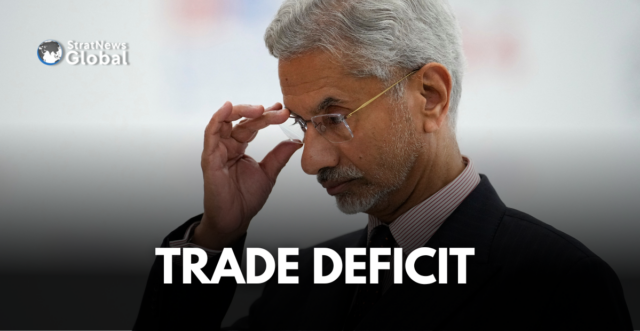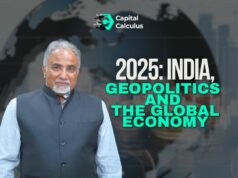India’s External Affairs Minister, S. Jaishankar, emphasized at the India-Russia Business Forum in Mumbai that the widening trade imbalance with Russia needs “urgent redressal” to maintain a sustainable trading relationship. He highlighted the necessity of tackling critical trade barriers, such as banking, payment systems, and logistical challenges that currently restrict Indian exports. Jaishankar spoke alongside Russia’s First Deputy Prime Minister Denis Manturov at the forum.
India’s exports to Russia from April to August this fiscal year were only $2.24 billion, compared to imports, which soared to $27.35 billion. This disparity, driven mainly by discounted Russian crude oil, has led to a trade deficit of $25.11 billion. Following Western sanctions after Russia’s 2022 invasion of Ukraine, India increased imports of Russian oil, becoming one of its largest buyers.
The current bilateral trade volume stands at $66 billion, with a realistic target of $100 billion by 2030. However, India’s exports make up less than a tenth of the total, highlighting the need for “urgent redressal” by removing non-tariff barriers and regulatory challenges. Jaishankar suggested that accelerating free trade negotiations with the Eurasian Economic Union and finalizing a bilateral investment treaty would further support trade goals.
He also underscored the need for trading in national currencies, with “Special Rupee Vostro Accounts” as an effective mechanism to manage trade payments. “However, even in the short run, a better trade balance with national currency settlements is key,” he added.
Jaishankar remarked that recent meetings between Prime Minister Narendra Modi and President Vladimir Putin had set a clear “strategic direction” for India-Russia relations. The potential of a partnership between “an India with an 8% growth rate and a Russia rich in natural resources and technology” was emphasized as beneficial for both countries.
He highlighted three key connectivity projects—the International North-South Transport Corridor, the Chennai-Vladivostok Corridor, and the Northern Maritime Route—to ease logistical challenges. He stressed that any solutions must “cater to the comfort level of all involved in trade,” noting the importance of addressing concerns like shipping, insurance, and market access to ensure smooth trade.
Jaishankar affirmed that India will remain a significant player in global energy markets, from oil and gas to uranium. “A mutually beneficial arrangement could help address today’s economic volatility and uncertainty,” he noted. He also suggested cooperation to address demographic imbalances, with Indian human resources potentially tailored to meet Russian market needs.
Jaishankar further emphasized the role of education and films in strengthening societal and economic ties between India and Russia. The forum, backed by the Indian industry group Ficci, saw participation from industry leaders, including Mahindra’s Anish Shah.





